Electromagnetics Blog Posts
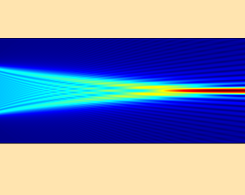
How to Perform Lens Simulations Using the Wave Optics Module
Lens simulations in wave optics can be difficult to perform, as they usually require a lot of mesh elements. Learn how to sidestep this issue using the functionality of the Wave Optics Module.
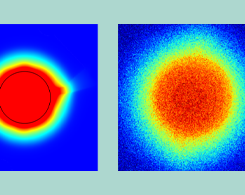
Developing a Silicon MEMS Chip for On-Demand DNA Synthesis
The development of genome editing tools like CRISPR-Cas9 has increased the demand for DNA synthesis technology. Researchers are creating a DNA synthesis platform to broaden horizons in the field.
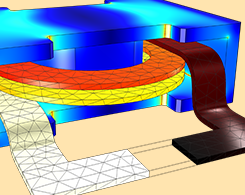
Which Study Type Should I Use for My Electrothermal Analysis?
What’s the best interface to use when implementing electrothermal analyses in COMSOL Multiphysics? We go over the interfaces, study types, and multiphysics couplings for high and low frequencies.

What Is the Curl Element (and Why Is It Used)?
When solving some electromagnetics problems, the curl element (also called the edge element or vector element) can be used in the finite element method.

Modeling of NDT Methods Using COMSOL Multiphysics®
Active thermography, active ultrasonic, guided waves, acoustic emissions, and eddy current testing: 5 examples of how nondestructive testing (NDT) methods can benefit from multiphysics modeling.
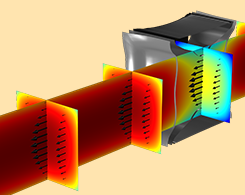
Three Semiconductor Device Models Using the Density-Gradient Theory
You can use the density-gradient theory to model semiconductor devices. Here are 3 examples: a Si inversion layer, Si nanowire MOSFET, and InSb p-channel FET.
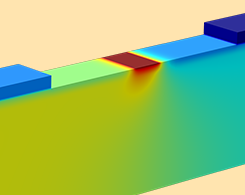
Intro to Density-Gradient Theory for Semiconductor Device Simulation
The density-gradient theory is a computationally efficient way to include quantum confinement in the conventional drift-diffusion formulation commonly used for simulating semiconductor devices.
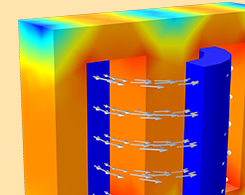
How the B-H Curve Affects a Magnetic Analysis (and How to Improve It)
Magnetic soft iron steels are widely used as core materials in motors, transformers, and inductors. The B-H curve is used to describe the magnetization properties of such materials.
